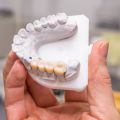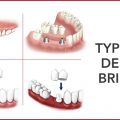6 Reasons Why You Should Choose a Dental Bridge

Dental implants are typically the recommended way to restore your smile. However, not everyone is an ideal candidate for this operation. Dental bridges are frequently neglected as an option for implants.
A bridge can be an appealing and secure way to replace one or more lost teeth. It restores your smile and regular oral functions including chewing and speaking. However, with so many various forms of tooth replacements available, how can you know if a bridge is the best option for you?
Here are six reasons you should consider obtaining a dental bridge:
1. Restores Ability to Chew and Speak
One of the primary reasons for getting a dental bridge is to restore your ability to chew and speak.
With fewer teeth in your mouth, the ones that remain must bear more of the strain while chewing. This can cause uneven wear, discomfort, and tooth loss over time.
A dental bridge can help restore your bite by replacing lost teeth with fake teeth that share some of the burden.
Its design distributes the chewing load throughout your mouth and jaw, helping you eat more comfortably.
A dental bridge can restore normal speaking sounds and the ability to chew.
2. Restores Smile and Improves Appearance
Tooth loss can dramatically change the appearance of your smile. It might have a detrimental impact on your appearance and self-esteem.
A dental bridge is intended to replace any gaps between your teeth, giving your smile the appearance of an unbroken row of teeth. This helps to keep your face in shape by preventing it from sinking in after you've lost some teeth.
A dental bridge can help you regain your smile and confidence by eliminating the need to feel embarrassed or self-conscious about gaps in your teeth.
3. Improves Oral Health and Prevents Other Issues
If you have one or more missing teeth, the adjacent teeth will likely begin to shift towards the gap. This movement creates a misalignment of your remaining teeth.
Getting a bridge keeps your remaining teeth from slipping or moving.
A dental bridge also helps to evenly distribute biting forces across all of your teeth. This decreases the risk of wear and tear on your remaining teeth, which would normally be subjected to extreme forces when chewing or biting down on foods like nuts or hard confectionery.
4. Fast Treatment Process with Minimal Discomfort
A dental bridge can be placed quickly and with little discomfort. It can be performed in as few as two visits, one for preparation and one for installation.
While the bridge may feel weird at first, the sensation normally passes soon. You can use the full functionality instantly, with no waiting period.
The procedure for getting a dental bridge is also significantly less intrusive than receiving a dental implant.
In contrast to implants, bridges do not require surgery. This means less time in the chair and less time waiting for the healing process.
5. Durability and Longevity of Treatment Results
Dental bridges are quite durable. They typically last between 10 and 15 years with adequate care and maintenance, depending on the kind, material, and patient care.
Dental bridges are extremely resistant to movement due to the support supplied by the adjacent teeth. However, it is vital to remember that they are not indestructible.
Dental bridges frequently fail for the same reasons as natural teeth do.
They may become loose or damaged as a result of impact, injury, or bruxism.
Decay can also infiltrate under the bridge and cause damage to the adjacent teeth. Changes in tooth alignment can also have an impact on how well the bridge fits in your mouth over time.
To avoid bridge failure, maintain adequate oral hygiene.
6. Lower Upfront Costs
If you're on a tight budget, dental bridges may be a good option. A dental bridge typically costs between $1,000 and $2,500 per tooth. A three-unit bridge, for example, is commonly used to replace one tooth and can cost anywhere from $3,000 to $7,500.
While dental bridges are not the cheapest choice, they do have a lower initial cost than other tooth replacement procedures, such as dental implants.
Other articles and publications:
Articles and publications of other companies:
- +1 (646) 270-9836
- Long Island City
- grantny.com










